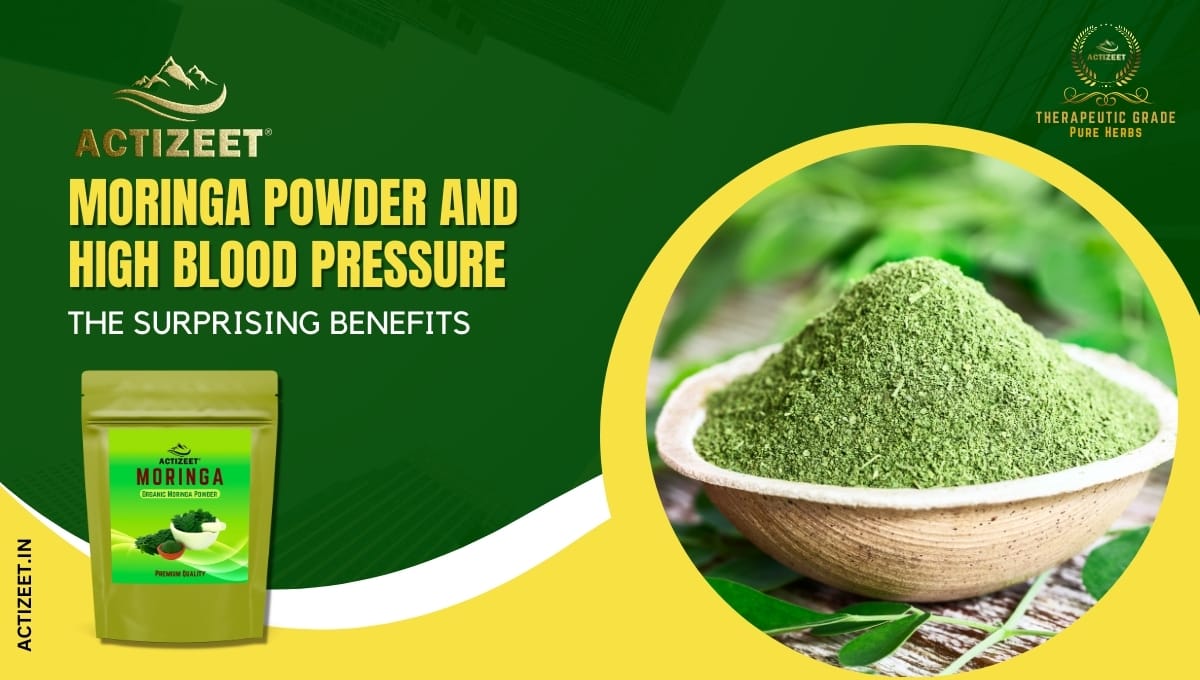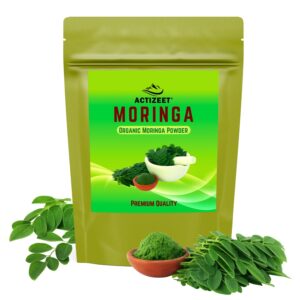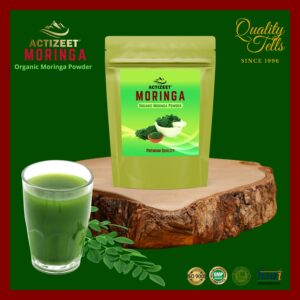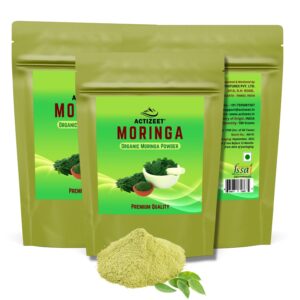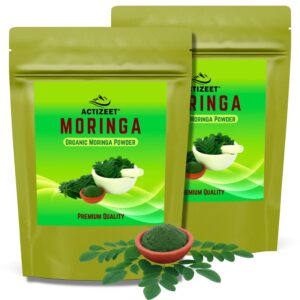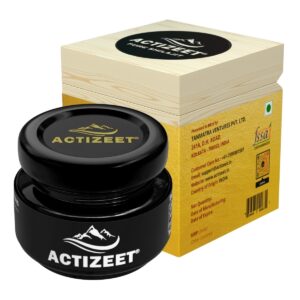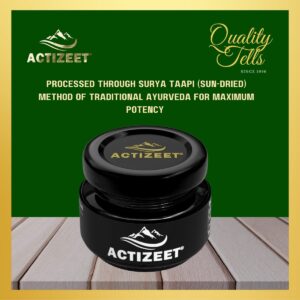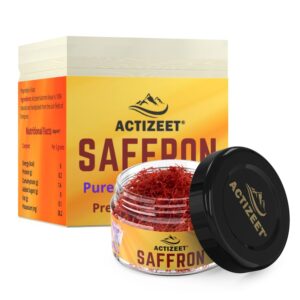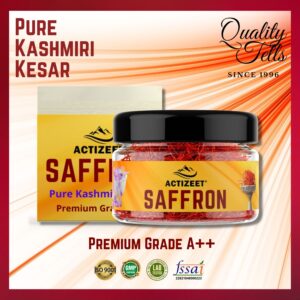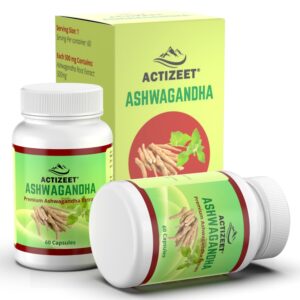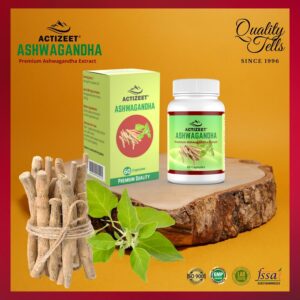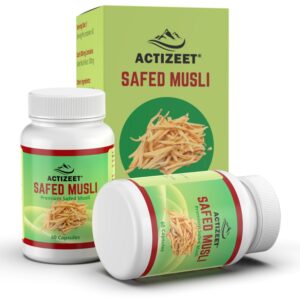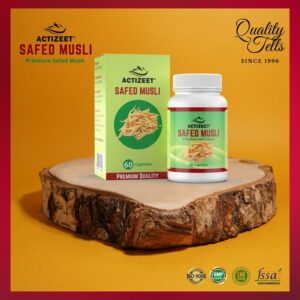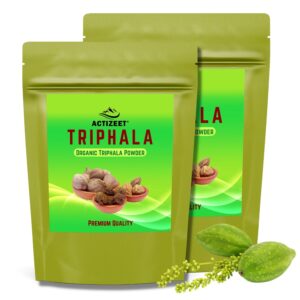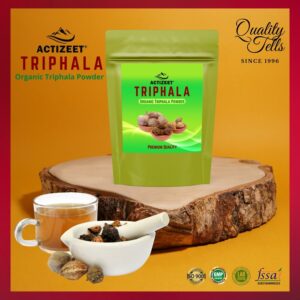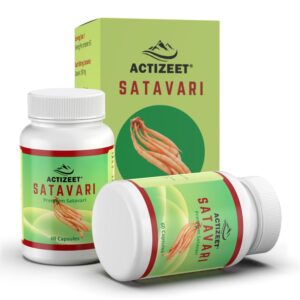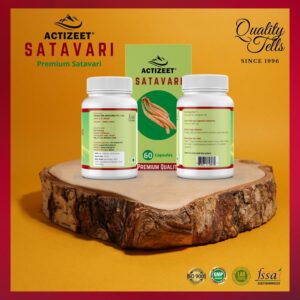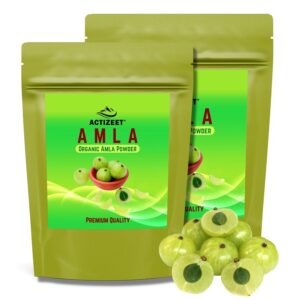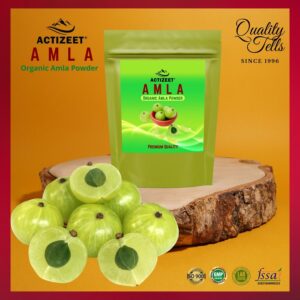High blood pressure, also known as hypertension, is a common medical condition that affects millions of people worldwide. It occurs when the force exerted by the blood against the walls of the arteries is consistently too high. This condition puts extra strain on the heart and blood vessels, increasing the risk of serious health problems such as heart disease, stroke, and kidney disease.
One of the challenging aspects of high blood pressure is that it often goes unnoticed as it does not typically present any symptoms. Hence, it is often referred to as the “silent killer.” The only way to determine if you have high blood pressure is by regularly checking your blood pressure readings using a sphygmomanometer or by visiting your healthcare provider.
Table of Contents
ToggleIntroduction to moringa powder
In recent years, there has been an increasing interest in natural remedies and dietary supplements for managing various health conditions. One such supplement that has gained popularity is moringa powder.
Derived from the leaves of the Moringa oleifera tree, native to parts of Africa and Asia, moringa powder is rich in essential nutrients and bioactive compounds. Moringa has been used in traditional medicine for centuries due to its numerous potential health benefits.
It contains a wealth of vitamins (such as vitamins C and E) and minerals (including potassium, calcium, and magnesium), along with powerful antioxidants like quercetin and chlorogenic acid. These properties make moringa powder a highly regarded superfood that has garnered attention for its potential role in promoting overall well-being.
But does it have any specific benefits for those with high blood pressure? Let’s explore this further in this article.
Understanding High Blood Pressure
Definition and Causes of High Blood Pressure
High blood pressure, also known as hypertension, is a condition where the force of blood against the walls of the arteries becomes too high. It is typically measured using two numbers, systolic and diastolic pressure, which represent the pressure when the heart beats and rests, respectively. A normal blood pressure reading is around 120/80 mmHg.
However, when these numbers consistently exceed 130/80 mmHg, it indicates hypertension. The causes of high blood pressure can vary from person to person.
Some factors that contribute to its development include unhealthy lifestyle habits such as a poor diet with excessive sodium intake, a lack of physical activity, smoking, excessive alcohol consumption, stress, and genetics. Additionally, certain medical conditions like obesity, kidney disease, hormonal imbalances (such as thyroid disorders), and certain medications can also lead to high blood pressure.
Health Risks Associated with High Blood Pressure
High blood pressure poses several health risks if left uncontrolled or untreated. One significant concern is its impact on cardiovascular health. Hypertension puts excessive strain on the heart by making it work harder to pump blood throughout the body.
Over time, this strain can lead to conditions such as heart disease or even heart failure. Moreover, persistently high blood pressure damages the delicate lining of arteries and promotes atherosclerosis—the buildup of plaque within arterial walls—which in turn increases the risk of stroke and peripheral arterial disease (PAD).
Hypertension can also damage the kidneys by impairing their ability to filter waste from the bloodstream efficiently. It is important for individuals with high blood pressure to understand these risks in order to take proactive steps towards managing their condition effectively through lifestyle changes and appropriate interventions prescribed by healthcare professionals.
Moringa Powder: An Overview
Moringa Plant and its Nutritional Value
When it comes to superfoods, the moringa plant takes centre stage with its incredible nutritional profile. Native to parts of Asia and Africa, the moringa plant, also known as “the miracle tree,” has been used for centuries in traditional medicine due to its numerous health benefits.
This small tree-like plant is packed with essential nutrients that make it a powerhouse in promoting overall well-being. The leaves of the moringa plant are particularly rich in vitamins, minerals, and antioxidants.
They boast an impressive array of nutrients like vitamin C, vitamin E, beta-carotene, potassium, calcium, and magnesium. Vitamin C plays a vital role in strengthening the immune system and fighting off harmful free radicals.
Vitamin E acts as a powerful antioxidant that protects cells from oxidative damage. Beta-carotene is converted into vitamin A by the body and is crucial for maintaining healthy vision and boosting immunity.
Extraction and Processing of Moringa Powder
To harness the incredible nutritional value of moringa leaves, they are carefully harvested from mature plants. The leaves are then washed thoroughly to remove any dirt or impurities. After washing, they are dried at low temperatures to preserve their delicate nutrients while ensuring optimal safety and quality.
Once dried, the leaves are ground into a fine powder using specialized machinery designed for this purpose. This process allows for easy consumption and integration into various recipes or dietary regimens.
It’s important to note that high-quality moringa powder should be made solely from organic sources without any additives or fillers. By transforming fresh moringa leaves into powder form through this meticulous extraction process, individuals can conveniently incorporate the leaf’s remarkable nutritional profile into their daily routine, whether by adding it to smoothies or sprinkling it onto salads or soups.
Moringa powder provides a concentrated dose of nutrients that may offer numerous health benefits, including potential support for managing high blood pressure. Overall, understanding the process involved in extracting and processing moringa powder highlights the care taken to preserve its nutritional value, making it a convenient and effective way to harness the power of this incredible plant.
Nutritional Composition of Moringa Powder
Rich in Antioxidants, Vitamins, and Minerals
Moringa powder is nature’s powerhouse when it comes to nutrition. Packed with antioxidants, vitamins, and minerals, this green superfood can be a valuable addition to your diet for managing high blood pressure.
Antioxidants play a crucial role in protecting the body against oxidative stress caused by free radicals. Moringa powder boasts an impressive antioxidant profile, including flavonoids such as quercetin and kaempferol, which are known for their anti-inflammatory properties.
When it comes to vitamins and minerals, moringa powder doesn’t disappoint. It is a fantastic source of vitamin C, providing you with a substantial boost to your immune system while also promoting healthy blood vessels.
Additionally, vitamin E found in moringa helps protect cells from damage caused by free radicals and supports overall cardiovascular health. Beta-carotene is another nutrient abundant in moringa powder; converted into vitamin A within the body, it aids in maintaining healthy eyesight and the proper functioning of the immune system.
Vitamin C, E, and Beta-carotene Content in Moringa Powder
Moringa powder is often hailed for its exceptional content of essential vitamins that are beneficial for managing high blood pressure. Let’s delve into its impressive vitamin composition. Vitamin C is a key nutrient known for its powerful antioxidant properties that help combat inflammation and oxidative stress within the body.
Interestingly enough, moringa powder contains significantly higher amounts of vitamin C compared to citrus fruits like oranges! This makes it an excellent choice for individuals looking to boost their immune system while supporting heart health simultaneously.
Furthermore, moringa powder is rich in vitamin E, a fat-soluble antioxidant that works synergistically with other nutrients to protect cells from damage caused by free radicals. Vitamin E promotes healthy blood flow, reduces the risk of blood clot formation, and supports overall cardiovascular health.
Beta-carotene, found abundantly in moringa powder, is a provitamin that the body converts into vitamin A. This conversion is vital for maintaining healthy skin, improving vision, and supporting the immune system’s optimal functioning. By incorporating moringa powder into your diet, you can effortlessly increase your intake of these essential vitamins critical to managing high blood pressure.
Potassium, Calcium, and Magnesium Levels in Moringa Powder
In addition to its impressive vitamin content, moringa powder also boasts substantial levels of vital minerals that play an integral role in regulating blood pressure. Potassium is a mineral known for its ability to balance sodium levels within the body. A high-sodium diet can often lead to fluid retention and increased blood pressure.
However, consuming adequate amounts of potassium helps counteract this effect by promoting diuresis (increased urine production) and relaxing blood vessels. Moringa powder offers a significant amount of potassium per serving—a valuable asset in maintaining healthy blood pressure.
Calcium is another crucial mineral found abundantly in moringa powder. While it’s primarily recognized for its role in maintaining strong bones and teeth, calcium also aids in vascular contraction and relaxation—an essential factor for maintaining optimal blood pressure levels.
Magnesium—an often overlooked yet vital mineral—plays a crucial role in various physiological processes within the body. It helps relax muscles surrounding blood vessels while promoting vasodilation (widening of blood vessels), leading to improved circulation and reduced hypertension risk.
Luckily, moringa powder provides a notable amount of magnesium to support overall cardiovascular health. By incorporating moringa powder into your daily routine as part of a balanced diet rich in antioxidants like vitamins C and E alongside essential minerals such as potassium, calcium, and magnesium, you can potentially contribute to the management of high blood pressure and support your overall well-being.
Role of Moringa Powder in Managing High Blood Pressure
Antihypertensive properties of moringa powder
Moringa powder has gained attention for its potential antihypertensive properties, making it a promising natural remedy for managing high blood pressure. One of the key mechanisms by which moringa powder exerts its beneficial effects on blood pressure is through vasodilation.
Vasodilation refers to the widening of blood vessels, allowing for smoother blood flow and reduced resistance. The bioactive compounds present in moringa, such as flavonoids and phenolic acids, have been found to promote vasodilation, contributing to a decrease in blood pressure levels.
Vasodilation effects on blood vessels
The vasodilation effects of moringa powder are particularly significant for individuals with high blood pressure. By widening the blood vessels, it helps to reduce the force exerted on their walls by the circulating blood. This subsequently leads to a decrease in systolic and diastolic pressures, both of which are important determinants of overall blood pressure readings.
Regulation of blood pressure through nitric oxide production
Additionally, moringa powder has been found to regulate blood pressure by influencing nitric oxide production in the body. Nitric oxide is a molecule that plays a crucial role in controlling vascular tone and maintaining healthy blood pressure levels. Studies suggest that moringa compounds can enhance nitric oxide synthesis or protect it from degradation, thus promoting better regulation and balance within the cardiovascular system.
Scientific Evidence Supporting the Use of Moringa Powder for High Blood Pressure
Studies demonstrating the effectiveness of moringa powder in lowering blood pressure
Several studies have explored the potential benefits of moringa powder in managing high blood pressure. Clinical trials have shown promising results, with participants demonstrating significant reductions in both systolic and diastolic blood pressure after regular consumption of moringa powder. These findings highlight the potential of moringa as a natural alternative or complement to conventional antihypertensive medications.
Clinical trials exploring the impact of systolic and diastolic pressures
In a randomized controlled trial involving hypertensive patients, daily supplementation with moringa powder resulted in notable decreases in systolic and diastolic blood pressure values compared to a placebo group. Furthermore, the study demonstrated that these effects were even more pronounced in individuals with moderate to severe hypertension.
Research on the reduction of oxidative stress related to hypertension
Research has also indicated that moringa powder may help reduce the oxidative stress associated with hypertension. Oxidative stress occurs when there is an imbalance between free radicals (highly reactive molecules) and antioxidants in the body.
High blood pressure can lead to increased oxidative stress, which further contributes to cardiovascular damage. Moringa’s rich antioxidant content helps combat this imbalance by neutralizing free radicals, thereby potentially reducing the risk of hypertension-related complications.
Incorporating Moringa Powder into a Healthy Lifestyle for Hypertension Management
Recommended dosage and consumption methods for maximum benefits
To incorporate moringa powder into your routine for managing high blood pressure, it is essential to follow the recommended dosages. While individual requirements may vary, generally, starting with 1-2 teaspoons (approximately 5–10 grams) per day is advisable. It can be gradually increased based on tolerance and desired effects.
Moringa powder can be consumed by adding it to smoothies, and juices, or sprinkling it over salads or cooked dishes. However, it’s important not to exceed recommended doses and to consult with a healthcare professional if you have any underlying health conditions or are taking medications.
Combining moringa powder with other dietary changes for optimal results
Incorporating moringa powder into a healthy lifestyle goes beyond mere supplementation. To maximize the benefits of managing high blood pressure, it is crucial to adopt an overall balanced diet that includes plenty of fruits, vegetables, lean proteins, whole grains, and healthy fats. Reducing sodium intake and limiting processed foods can also help in maintaining optimal blood pressure levels.
Additionally, regular exercise, stress management techniques like meditation or yoga, and adequate sleep contribute to overall cardiovascular health. When combined with these lifestyle modifications, moringa powder can be a valuable natural addition to your hypertension management plan.
Side Effects or Interactions with Medications
While moringa powder is generally considered safe when consumed in moderate amounts as part of a varied diet, it’s important to be aware of potential side effects and interactions with certain medications. Some individuals may experience digestive discomforts such as diarrhoea or nausea due to moringa’s high fiber content. It is advised to start with smaller doses and gradually increase consumption to minimize any adverse reactions.
Moreover, moringa may interact with specific medications, like blood thinners or antihypertensive drugs. If you are taking any prescription medications or have underlying medical conditions, it is essential to consult your healthcare provider before incorporating moringa powder into your routine.
Conclusion
Scientific evidence suggests that moringa powder holds promise in managing high blood pressure due to its vasodilation properties and ability to regulate blood pressure through nitric oxide production. Clinical trials have demonstrated its effectiveness in reducing both systolic and diastolic pressures while also addressing oxidative stress related to hypertension. By incorporating recommended dosages of moringa powder into a healthy lifestyle, individuals can potentially enhance their hypertension management efforts.
However, it is crucial to be mindful of potential side effects and interactions with medications, and to seek guidance from healthcare professionals when considering moringa powder as part of your overall approach to managing high blood pressure. Embracing a holistic lifestyle that includes dietary changes, exercise, stress management, and adequate sleep will undoubtedly yield the best outcomes for long-term cardiovascular health.
ACTIZEET Moringa Powder
-
Rated 4.85 out of 5
₹1,200.00Original price was: ₹1,200.00.₹900.00Current price is: ₹900.00. Incl. GST ADD TO CART Buy Now -
Rated 4.84 out of 5
₹3,600.00Original price was: ₹3,600.00.₹2,100.00Current price is: ₹2,100.00. Incl. GST ADD TO CART Buy Now -
Rated 4.80 out of 5
₹2,400.00Original price was: ₹2,400.00.₹1,600.00Current price is: ₹1,600.00. Incl. GST ADD TO CART Buy Now
Related Products
-
Himalayan Shilajit, Pure shilajit, Shilajit, SHUDDH SURYA TAPI SHILAJIT
Rated 4.74 out of 5₹4,950.00Original price was: ₹4,950.00.₹3,950.00Current price is: ₹3,950.00. Incl. GST ADD TO CART Buy Now -
Rated 4.86 out of 5
₹2,400.00Original price was: ₹2,400.00.₹1,600.00Current price is: ₹1,600.00. Incl. GST ADD TO CART Buy Now -
Rated 4.82 out of 5
₹2,400.00Original price was: ₹2,400.00.₹1,600.00Current price is: ₹1,600.00. Incl. GST ADD TO CART Buy Now -
Rated 4.84 out of 5
₹2,400.00Original price was: ₹2,400.00.₹1,600.00Current price is: ₹1,600.00. Incl. GST ADD TO CART Buy Now
-
Rated 4.00 out of 5
₹2,400.00Original price was: ₹2,400.00.₹1,600.00Current price is: ₹1,600.00. Incl. GST ADD TO CART Buy Now -
Rated 4.80 out of 5
₹2,400.00Original price was: ₹2,400.00.₹1,600.00Current price is: ₹1,600.00. Incl. GST ADD TO CART Buy Now -
Rated 4.71 out of 5
₹2,400.00Original price was: ₹2,400.00.₹1,600.00Current price is: ₹1,600.00. Incl. GST ADD TO CART Buy Now -
Rated 0 out of 5
₹2,400.00Original price was: ₹2,400.00.₹1,600.00Current price is: ₹1,600.00. Incl. GST ADD TO CART Buy Now
Related posts:
- Discover the Truth: Moringa Powder & Blood Pressure
- Moringa Benefits: The Ultimate Guide
- 10 Amazing Moringa Powder Benefits You Might Not Know
- Moringa for Men: Benefits, Uses, and Frequently Asked Questions
- Moringa Powder in Panaji (Goa)
- Unveiling the Truth: Can Shilajit Spike Blood Pressure?
- Moringa Powder in Gangtok (Sikkim)
- Moringa Powder in Imphal (Manipur)

